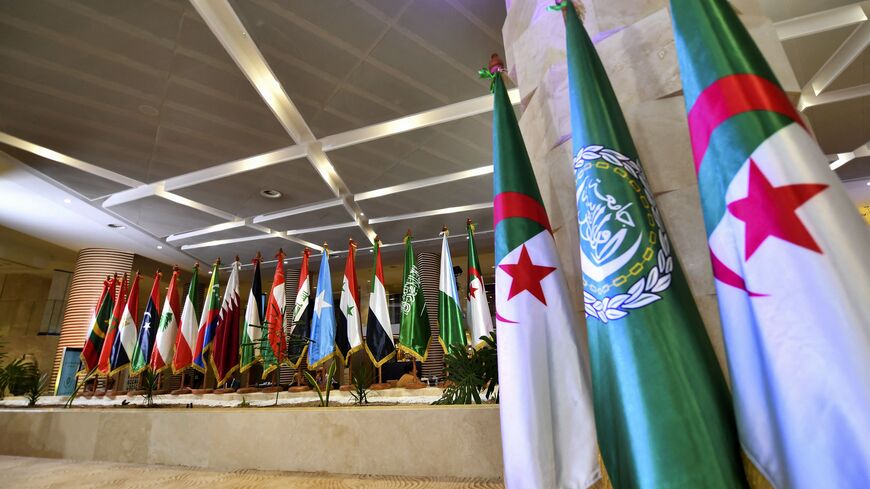WASHINGTON — Three words — “Assad must go'' — once came to define US policy in Syria. Today, the Biden administration's stance could be summarized as, Assad must not be normalized without something in return.
The Arab world is rebuilding ties with President Bashar al-Assad, more than a decade after the regime violently cracked down on a peaceful anti-government uprising, spawning a civil war that killed hundreds of thousands of people, created a new generation of extremist groups and caused the biggest displacement crisis since World War II.
The Biden administration has long said it opposes the Syrian government’s normalization absent serious progress toward UN Security Council Resolution 2254, which in 2015 laid out a roadmap for a political settlement to end the crisis. But last month, Assistant Secretary of State for Near Eastern Affairs Barbara Leaf offered a slightly different message.
“Our basic message has been [that] if you’re going to engage with the [Assad] regime, get something for that,” Leaf said during an Al-Monitor event on March 9.
She repeated that message to reporters last week, adding that the "US's own approach to Syria is unchanged."
The new messaging comes as key US partners, including the United Arab Emirates, Jordan and Egypt, have each taken steps to re-engage the long-shunned regime that they judge to have staying power. With the help of Russia and Iran, Assad's forces have retaken much of Syria, aside from a Kurdish-controlled pocket in the northeast and the rebel-held bastion of Idlib province in the northwest.
“What we are reading from what the Americans are saying is, ‘we are not against the initiatives you are doing but the [US] sanctions will stay,’” an Arab diplomat told Al-Monitor, speaking on condition of anonymity. “What we have seen is, let the Arabs try [outreach to Assad], and let us see what the results are.”
The regional rapprochement with Syria dates back to 2018, when the United Arab Emirates and Bahrain reopened their embassies in Damascus. Oman in 2020 took the further step of becoming the first Gulf state to reinstate its ambassador.
But the fence-mending has accelerated considerably under the Biden administration and following the deadly Feb. 6 earthquakes, which killed some 6,000 people in Syria and gave its neighbors political cover to re-engage with Assad under the guise of providing disaster relief.
Last month, Assad and his wife, Asma al-Assad, paid an official visit to the United Arab Emirates, and on Saturday, Syria's top diplomat, Faisal Mekdad, traveled to Cairo in the first such trip by a Syrian foreign minister to Egypt in over a decade.
Speculation is rife that Saudi Arabia, which once supplied arms to the rebels seeking to oust Assad, will invite him to the Arab League summit that Riyadh is hosting in May. Readmission into the 22-member group, which suspended Syria’s membership in 2011, would be the biggest indicator yet of Assad’s rehabilitation.
The Biden administration has publicly opposed such efforts to legitimize Assad, but critics say it could be exerting more behind-the-scenes pressure to prevent it, such as scaling up economic sanctions at a time when Syria is seeking foreign investment to rebuild the war-ravaged country.
Bipartisan House and Senate leaders recently drew attention to the “disappointingly slow pace of sanctions” under the Caesar Act, which Congress intended as a tool for choking off Assad’s financial lifelines. Last week, the administration issued its first-ever Caesar sanctions, targeting prominent figures in Syria’s multi billion-dollar narco-trafficking operations.
Mona Yacoubian, a senior advisor on Syria at the U.S. Institute of Peace, said the Biden administration has adopted a more realistic stance on normalization.
“If we're going to expend diplomatic capital, what do we expend it on? Rather than failed efforts to get countries to continue to isolate, perhaps expend that capital on efforts to truly get something for it,” Yacoubian said. She pointed to a few incremental possibilities that would have an impact on the ground, including expanded humanitarian access and a nationwide ceasefire.
Leaf was skeptical of the claim by some regional states that making nice with Damascus could peel it away from Tehran, whose militias helped turn the tide of the 12-year war in Assad’s favor. A State Department spokesperson later added that “real steps to improve the situation for the people in Syria should be front and center” in any engagement with the regime.
“We are urging partners to advocate for sustained, predictable, and independent humanitarian access, including through expanded use of border crossings,” the spokesperson said. “We also want to see authentic and enduring progress on the political track such as accountability for human rights violations, the release of those arbitrarily detained, and an accounting for the missing.”
Steven Heydemann, a senior nonresident fellow at the Brookings Institution Center for Middle East Policy, says there’s little to suggest recent overtures have induced meaningful changes in the regime's behavior.
“The Assad regime is getting more of what it wants through normalization, without having to make concessions,” Heydemann said. “Pocketing the gains while continuing with its current conduct."
This story has been updated to include a comment from the State Department.







